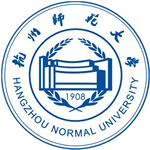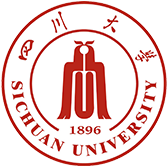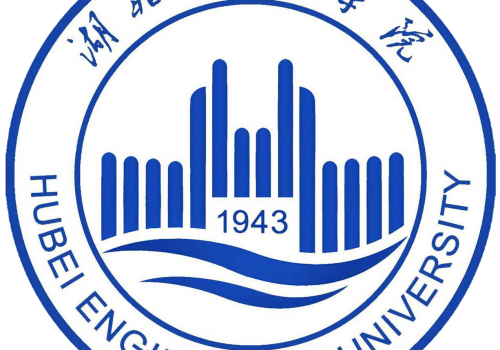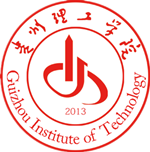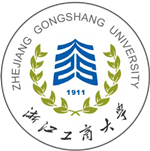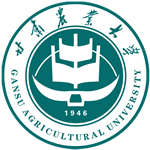About Hangzhou Normal University
University History. Nanjing Forestry University (NJFU) is a provincial key university co-administered by Jiangsu Provincial Government and the National Ministry of Education. It was evolved to Nanjing Forestry College in 1952 from the Forest Departments of Central University (founded in 1902) and the University of Nanking(founded in 1910). In 1955, the forest departments of Wuhan University, Nanchang University and Hubei Agricultural Collage were merged in. Since 1985, it has obtained the present name. In 2017, NJFU enters into the list of “Double First-Class” University Project of China.
Education Programs. At present, NFU has 22 schools, offering a wealth of programs spanning across a broad range of fields with special emphasis on studies on resources, ecology and environment. In the fourth round of the national discipline evaluation (2017), three disciplines, ie., Forestry Engineering, Forestry, and Landscape Architecture, were rated as A class, occupying the first place among the forestry universities in China and among Jiangsu provincial colleges and universities. NJFU has been authorized to provide 8 mobile post-doctoral station programs, 46 doctoral degree programs, 115 master’s degree authorization points, 27 professional degree authorization categories or areas, and 74 undergraduate programs. The total number of students is more than 30,000, among whom are 6,200 master, doctoral and foreign students. NJFU has more than 2050 faculty members, among whom are 2 members of the Chinese Academy of Engineering, 181 PhD supervisors, and 700 teachers with senior titles.
Scientific Research. With the advantage of the characteristic disciplines, NJFU has long focused on the independent innovation. At present, NJFU possesses a National Engineering Center of Biologic Materials for Mechanical Products Packing, and 49 R&D research institutions, key labs and engineering research centers at provincial levels, among which are the Key Open Laboratory of Forest Genetics and Biotechnology, the Research Center of Forest Tree Seed in South China. There are also 66 university-based research institutions and centers. In recent years, NJFU has undertaken over 800 research projects, including more than 400 projects of the Natural Science Foundation of China (NSFC). More than 300 achievements have been awarded by the state, ministry and province, including 5 National Invention Awards, 1 National Natural Science Award, 51 National Science and Technology Awards.
International Cooperation. NJFU attaches great importance to internationalization and takes an active role in developing open education and international exchange cooperation.NJFU has established long-term cooperative relationships in academic research, teacher training and talent exchange with dozens of universities and scientific research institutions from 30 countries. Some special international cooperation programs have been launched, such as the 3+2 program with the University of British Columbia, 3+1+1 program with the University of New Brunswick, 3+1 program with Rheinisch-Westfälische Techniche Hochschule Aachen, 3+1+1 program with the University of the West, 3+2 program with the University of North Texas, etc. Hundreds of students in NJFU go abroad to have international education, and around 600 international students come to NJFU to study and exchange annually.
With 23 schools, and 1 affiliated hospital, Hangzhou Normal University has Cangqian, Xiasha and Yuhuangshan campuses, covering a total area of about 240 hectares, with a total construction area of 2.4 million square meters. It has nearly 2400 staff members and 1700 full-time teachers, and more than 24,000 full-time students, including more than 20,000 undergraduates, over 3,200 graduate students, and about 360 international degree students.
HZNU glitters with a galaxy of high-level scholars and scientists who are widely acknowledged provincially and nationally. Represented by 1 academician from Chinese Academy of Sciences, we have more than a hundred top talents on provincial and national levels, including Chang Jiang Scholars, Distinguished Young Scholars and National Outstanding Teachers. With its hard work, HZNU has been gaining strength and showing great advancement. With 8 of its disciplines in the top 1% of international ESI disciplines, the University is now among China’s top 100 by ESI ranking and has secured a leading position among its provincial peers when it comes to the overall strength of disciplines.
HZNU keeps a close eye on the Belt and Road Initiative and follows closely what is going on globally. The University, which is among the first to be accredited by China Education Association for International Exchange for international student education, co-runs a center for Chinese language education and cooperation in partnership with Middle Tennessee State University in the United States, a Joint Institute with Kharkiv National University in Ukraine and a Joint Program at Master Level with the University of Canberra in Australia. Friendly ties have been established with over 70 renowned universities around the world, confirming its belief that openness and inclusiveness should be the tone for international exchanges.
In 1905, the governor of Zhejiang Province founded a teaching school aimed at training teachers for high schools and primary schools in the province. In 1908, the school was named Zhejiang Official Secondary Normal School (浙江官立两级师范学堂) and was in the original address of Zhejiang Gongyuan (浙江贡院). Shen Junru was appointed as a supervisor in 1909.
In 1912, under the guidance of the Education Department of the Republic of China, the school became one of the six well-known higher education schools for teaching at that time. It issued its publications, such as Baiyang (白阳) and Zhejiang Trendy (浙江新潮). It set up clubs, such as Music Rock Club (乐石社), Lakeside Poetry Club (湖畔诗社), and Mingyuan Club (明远学社). Educationist Jing Hengyi (经亨颐) was the principal; famous masters such as Li Shutong and Lu Xun taught there; Feng Zikai, Qian Xuesen, and Pan Tianshou studied at the school.
When the Japanese invaded Hangzhou during World War II, the school was relocated to places such as Jiande and Lishui; it was moved back to Hangzhou after the war.
The school has been under direct jurisdiction of the Hangzhou Municipal Government since 1954. In 1978, the State Council approved to found of Hangzhou Normal College (杭州师范学院), which was approved by the Ministry of Education (China) to change its name to Hangzhou Normal University in March 2007.
In 2010, a proposal was jointly submitted by Sun Zhonghuan, Zhao Guangyu, Yu Jialing, Zhu Zude, and Chen Xiaoping, three municipal officials of Hangzhou. They suggested changing Hangzhou Normal University to Hangzhou University because this university had reached the level of the old University of Hangzhou. However, many provincial and municipal officials and dignitaries rejected it. This was a widespread but unsuccessful proposal in the end.
From education leaders to the world’s billionaires, from well-known singers to academic researchers, the alumni of Hangzhou Normal University have achieved success in a variety of fields.
- Jack Ma: CEO of Taobao, one of China’s foremost online shopping websites, and Alibaba Group, one of China’s biggest e-commerce companies[4]
- Mao Buyi: Chinese singer and songwriter
- Lu Wei (吕薇): national first-class singer; has had numerous performances in Japan, America, Australia, New Zealand, France, etc.
- Xiaopeng Yan (严晓鹏): dean, International Cooperation College, Wenzhou University
- Dr. Yeping Li (李业平): professor and department head, College of Teaching, Learning, and Culture, Texas A&M University
- Fuqiang Jin (金富强): president, Allsino Chemicals Co., Ltd.
- Dr. Jinfa Cai (蔡金法): professor, Department of Mathematical Sciences, University of Delaware
- Feifang Hu (胡飞芳): professor, Department of Statistics, University of Virginia
- Dr. Xueqiang Ma (马学强): researcher fellow, Institute of History of Shanghai Academy of Social Sciences
- Yinyue Hu (胡银岳): head, the Institute of Musicology of The Central Conservatory of Music
- Xiong Ying (应雄): president, Zhejiang Wanli Education Group
- Shengyuan Xu (徐胜元): professor, School of Electrical Engineering and Automation, Nanjing University of Science and Technology
- Shumeng Huang (黄书孟): national second-class professor; former vice president of Zhejiang University
- JieNan Yu (俞杰南): Hangzhou Fuyang district first people’s hospital

